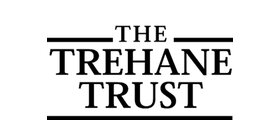Report Synopsis
Where Corporate meets Family in Business
The aim of this study is to understand what can be transferred from a corporate business model to a family enterprise whilst retaining the essence of a family business.
Looking at the best of both ownership models, I wanted to get to the heart of what makes both successful. From my own experience of growing up in a family run farming business and then marrying in to another, I’ve seen how essential it is to have good communication and governance in place. I’ve also seen the effect on a family when it doesn’t exist. I’ve built my study around this very topic, bringing back better insight for family enterprises.
My report builds on the deep-rooted qualities and values I’ve seen in family run businesses. These to me remain sacred and are the backbone to the brand. This report highlights the importance of holding on to these values.
Before I started this study, I had an expectation that corporate and family owned businesses were two very different animals. For example, I thought a long-term view for a corporate business was 5- 10 years whereas a family business looked ahead 30 years plus to take into account generations. I also thought family businesses in the farming industry had an expectation they would be around for ever. Their governance didn’t take priority and strategic thinking on occasion took a back seat.
However, the contrast and the assumptions I’d made in advance were not so. I came to realise quite quickly that ownership is irrelevant; it’s about the way the business chooses to function and how you empower people within it regardless of connection to the ownership. During my Nuffield research I found family and corporate businesses had major similarities and whilst there were differences, they were not the differences I originally thought.
In fact, my study shows family run businesses can have everything a corporate business has. They just need to know what works well in corporate and recreate it for their own business. For example, bringing in expertise that doesn’t exist in the family or finding support to help them expose hidden talents they already have. This allows families to stay together and successfully integrate generations.
To realise the potential of being a part of a family business we shouldn’t take for granted the opportunities to learn about business from a very young age. We need to make sure we continue investment in family members, even when they don’t fit the expected family mould.
This report provides evidence that ‘great business’ be it corporate, family or other, comes down to people having a vision and knowing what the company strategy is. Building and relying on structure and governance when you need an anchor, regardless of the size of the business, can be vital.
Alexa Parker

The Trehane Trust

Similar Reports
- 2024
Is tracking carbon on farm good for business?
Pippa Jones - 2022
Can carbon neutral insects be farmed profitably?
Dr Olivia L. Champion - 2022
Sustainable financing of Brazilian farming: the role that supply chains can play and carbon markets probably will not
Renata Rossetto Lopes - 2022
Cannabis in Australia: cultivating at scale and lessons from overseas markets
Max Edgley
